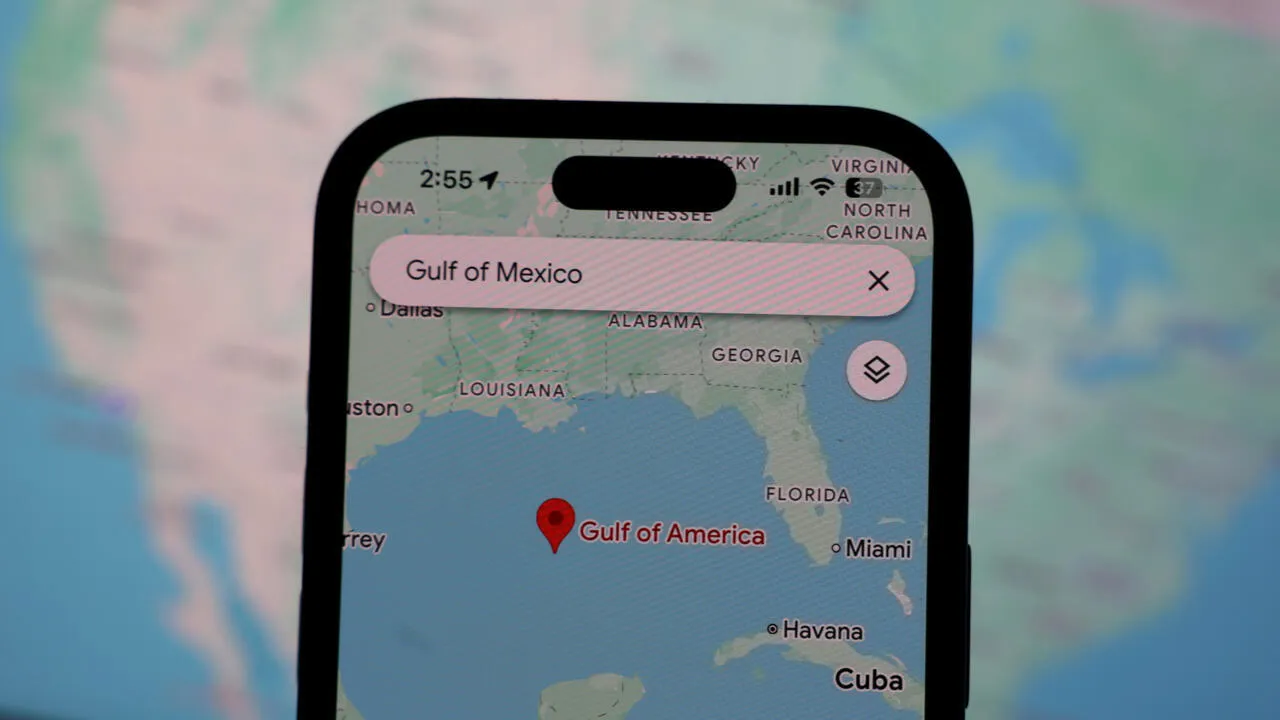Mexico Sues Google Over Controversial ‘Gulf of America’ Name Change
In a significant move that has sent shockwaves across diplomatic and tech communities, the Mexican government has officially filed a lawsuit against tech giant Google over its recent decision to alter the naming of the ‘Gulf of Mexico’ to ‘Gulf of America’ in its services following an executive directive from former President Donald Trump. The change, first noted in Google Maps and other associated platforms, has sparked widespread uproar and raised serious questions about national sovereignty and the implications of tech companies’ influence in geopolitics.
Background and Context
The Gulf of Mexico has been historically and culturally significant to both Mexico and the United States, acting as a crucial body of water for trade, tourism, and natural resources. However, tensions began to escalate when in mid-2023, an executive order was purportedly issued by then-President Trump, calling for the rebranding of geographic names that he deemed incorrectly attributed to foreign nations.
Many historians and geographers criticize the rebranding effort, arguing it undermines the historical contributions of Mexico and diminishes cultural understanding in a region that is deeply intertwined across borders. With Google being one of the most influential tech corporations globally, its change drew instantaneous backlash, especially as it could potentially normalize a viewpoint that disregards historical context and international relationships.
Legal Grounding of the Case
The Mexican government has filed the lawsuit in response to what it sees as a blatant disregard for its territory and international laws. Legal experts note that Mexico’s arguments may center around international law principles that protect national landmarks and geographical names from being rebranded without proper diplomatic channels.
One of the key legal bases for Mexico’s suit could revolve around the concept of sovereignty. Every nation maintains the right to protect its cultural and historical identity, and altering the name of a geographic feature can be construed as an appropriation of that identity. Mexico has stated in its legal filings that this name change, executed without their consent, stands as a challenge to their territorial rights and cultural heritage.
Implications for Bilateral Relations
This lawsuit comes at a time when U.S.-Mexico relations have been strained on numerous fronts, including trade policies, immigration debates, and security issues. The altered name reflects what many believe to be a broader fallout from nationalist sentiments that have characterized much of the political rhetoric in the U.S. in recent years.
If Mexico prevails in its lawsuit, the implications could be far-reaching, potentially setting a precedent for how tech companies interact with geographic naming conventions. This could lead to more stringent regulations for tech companies, as well as a larger conversation surrounding how technology and media should navigate cultural representations.
Public Reaction and Advocacy
Public reaction has been polarized. Many citizens of Mexico have taken to social media to voice their outrage over the perceived marginalization of their country’s identity, with hashtags like #GulfOfMexico and #OurGulf trending on platforms like Twitter and Instagram. Advocacy groups have emerged, calling for a boycott of Google products until the company reverts the naming back to its historical and geographical significance.
Conversely, there are factions within the U.S. who argue that the name change reflects a reclamation of identity and should be seen as a patriotic duty to assert American sovereignty. Proponents of this view have flocked to forums and community meetings to defend the rebranding.
Google’s Response
As of the latest updates, Google has remained relatively unresponsive to the legal challenges posed by Mexico. In an official statement shortly after the lawsuit was filed, a Google spokesperson remarked, “We strive to provide accurate and helpful information to users across the globe and will continue to assess the matter as it unfolds.” However, legal experts anticipate that should the pressure intensify, the tech giant may be compelled to engage in dialogues with both the Mexican government and international legal institutions.
Potential Outcomes of the Lawsuit
Legal scholars have posited several potential outcomes for the lawsuit, which could range from a favorable ruling for Mexico, resulting in the immediate reversion of the name, to a protracted legal battle that could evolve into a lengthy negotiation process between the two nations.
There is also the consideration of a settlement. Market dynamics and public opinion could drive Google to negotiate a compromise that allows both parties to claim some level of victory without damaging diplomatic ties irreparably.
The Role of Technology in Modern Geopolitics
This incident illustrates a growing trend: the intersection of technology and politics. In a world increasingly dominated by digital platforms, decisions made by corporations can have profound ramifications on national identities and cultural heritage.
This case raises ethical questions regarding the role of corporate governance and the responsibilities that come with operating on a global scale. As tech companies expand their reach, how they represent geography, history, and culture will increasingly be scrutinized. The greater concern: if tech firms claim the power to alter geographical representations, what other aspects of cultural identity may fall victim to corporate influence?
Conclusion
As the lawsuit unfolds, the outcome will likely hinge not just on legal precedents, but also on the extent to which cultural sensitivity is valued in the rapidly evolving landscape of digital technology. With Mexico taking a strong stance, the world is watching closely to see if this contentious dispute will usher in a new era of cooperation or exacerbate existing geopolitical tensions.
In the age of global interconnectivity, one thing is abundantly clear: the stakes are high when technology meets the world of governance, and the implications of a simple name change can serve as a microcosm for larger international relations.







